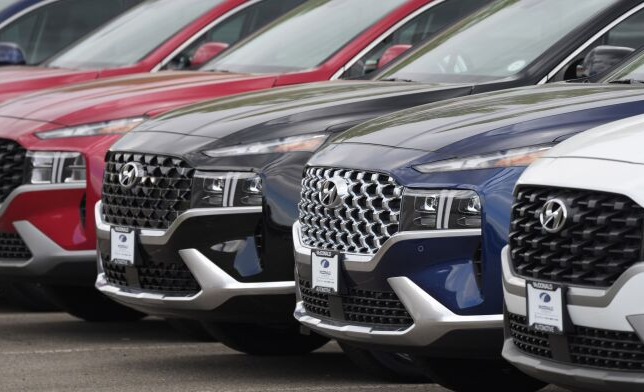The antilock brake system in Hyundai and Kia vehicles is experiencing a malfunction, leading the car manufacturers to advise owners to park their vehicles outdoors as a precaution against potential fires. This issue impacts a total of 3.3 million vehicles in the United States.
The affected vehicles span from the year 2010 and encompass a wide range of models, including sedans and SUVs. The problem stems from the deterioration of the O-ring within the antilock brake system, which can lead to brake fluid leakage and the possibility of a fire caused by an electrical short circuit.
The recall announcement, issued in collaboration with the NHTSA (National Highway Transportation Safety Administration), recommends owners to not only park their affected vehicles outdoors but also at a distance from buildings or valuable property. This precautionary measure is prompted by the concerning fact that there have been more than 40 reported incidents of fires and fire-related incidents associated with this problem.
Michael Brooks, who serves as the executive director of the nonprofit Center for Auto Safety, expresses understandable frustration regarding the delay in addressing the leakage issues by the automakers.
He questions the reasons behind the extended timeframe for notifying owners, considering that the problem has been identified as early as mid-September. Both Hyundai and Kia intend to commence the distribution of notices to owners starting in late November, which appears to be a significant gap in time.
Hyundai and Kia, on the other hand, argue that there have been no reported accidents directly linked to this problem, and they emphasize that the overall risk of a fire occurring is minimal.
This recall follows closely on the heels of another concerning situation involving these same auto manufacturers. Approximately one month prior, Hyundai and Kia initiated a recall affecting nearly 100,000 new vehicles due to fire-related issues linked to the electronic controller within their oil pumps.
Adding to the list of concerns, it has been revealed that approximately 9 million Kia vehicles are vulnerable to easy theft this year. This vulnerability stems from the ability to start these vehicles using a USB device and a screwdriver, as was demonstrated in a series of TikTok videos.
In spite of these challenges, Kia and Hyundai continue to attract customers and sustain steady sales. They offer a compelling range of vehicles that resonate with a substantial customer base. According to the NHTSA, the majority of Kia and Hyundai vehicles have received favorable safety ratings, underscoring their commitment to overall safety.








